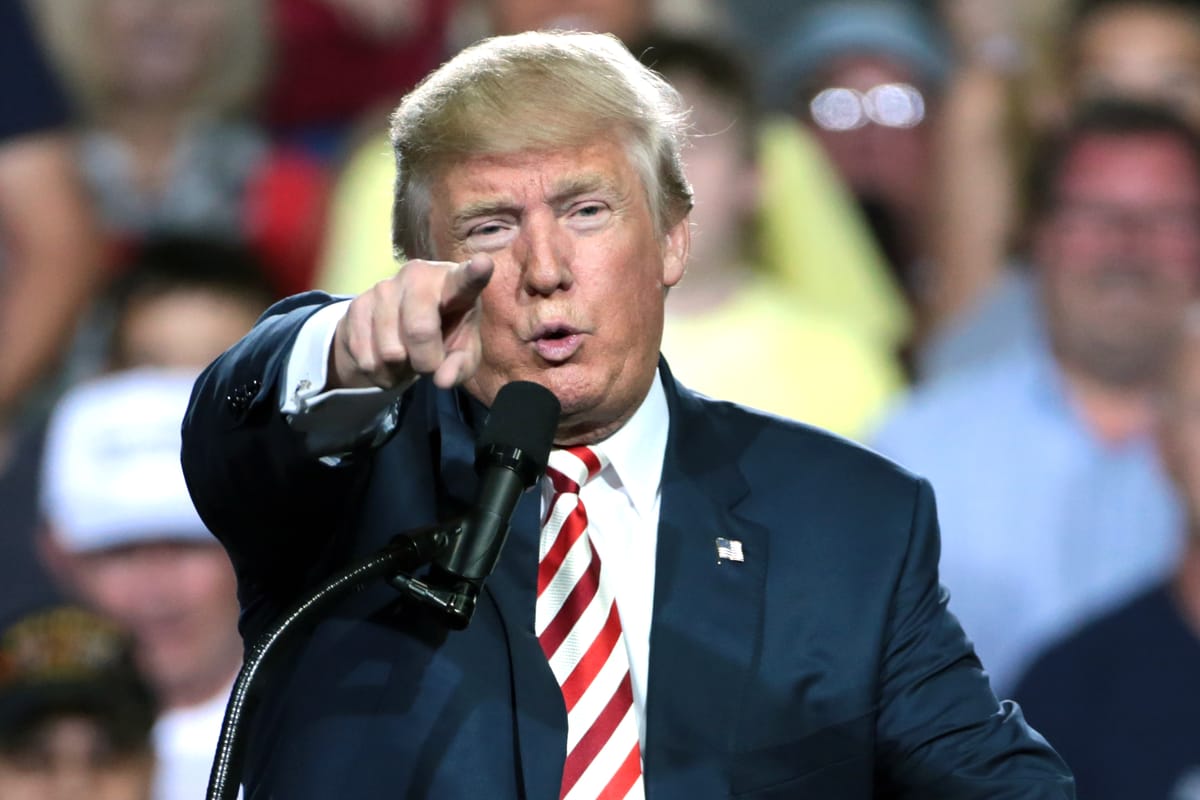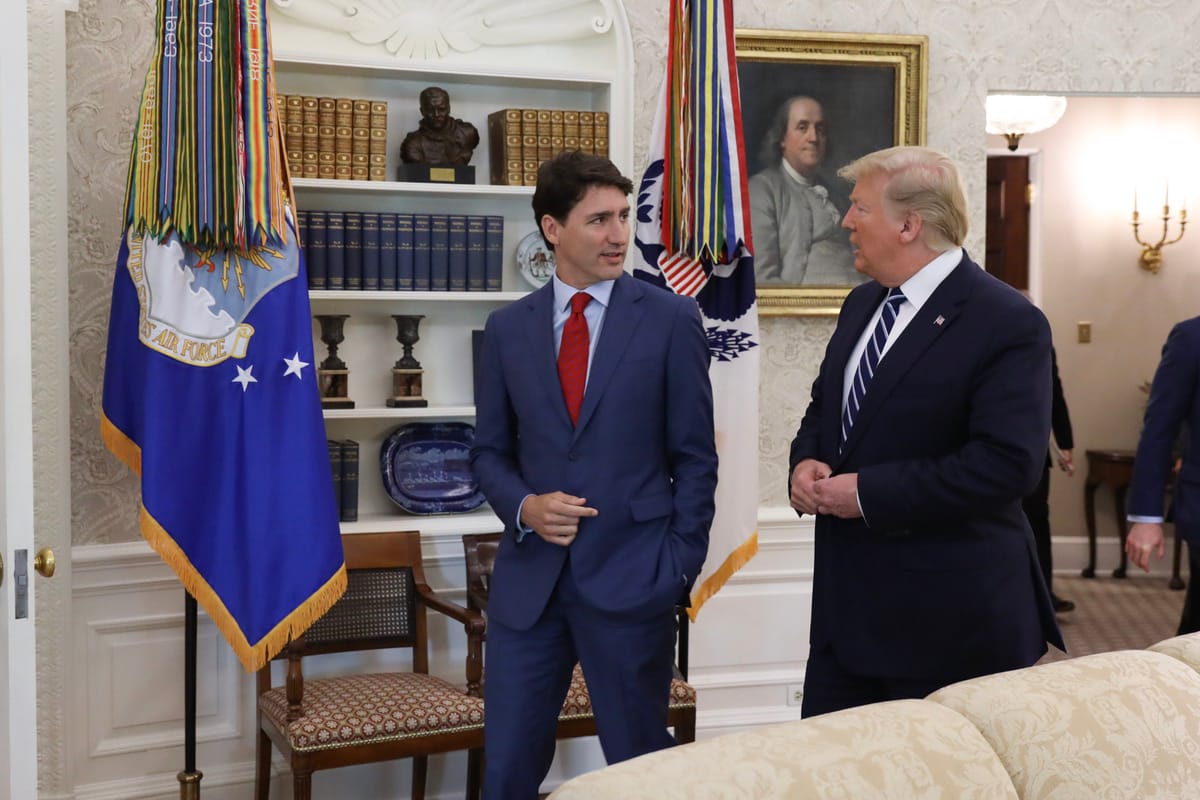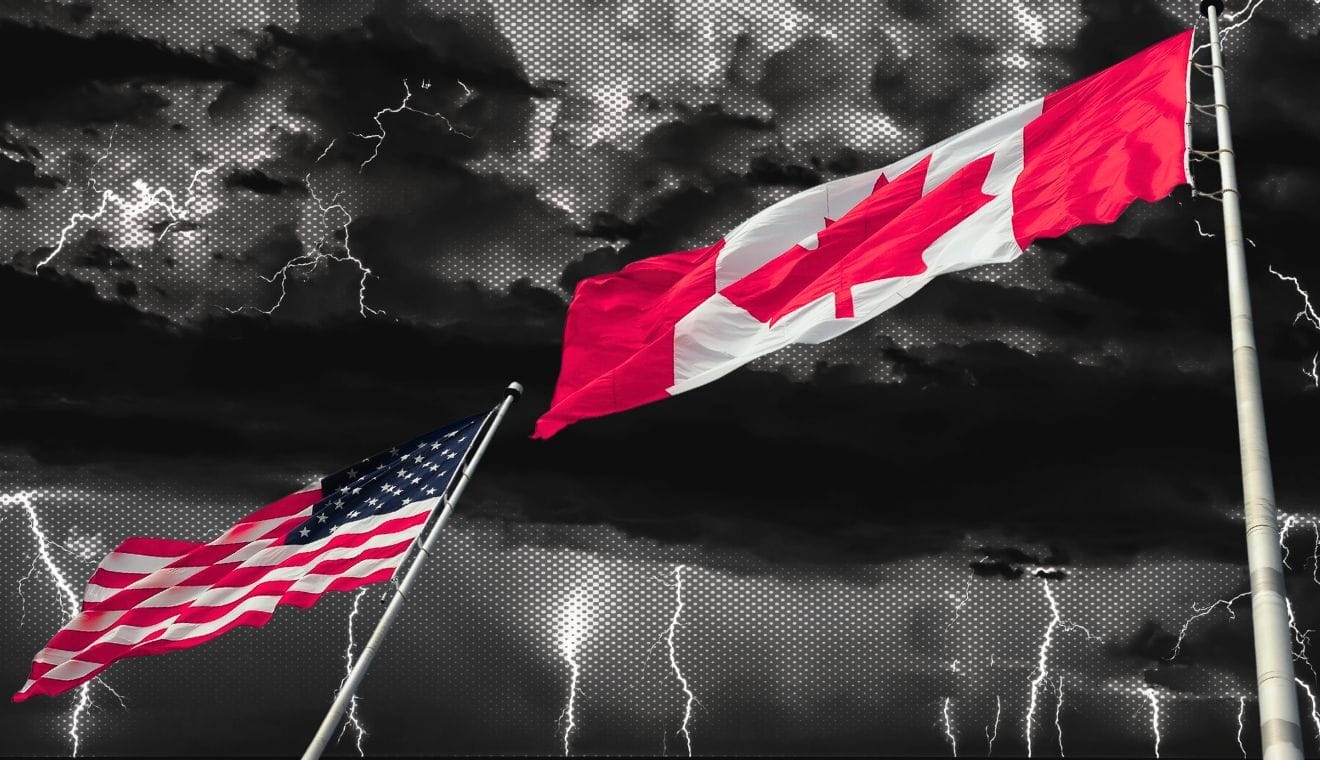Threats of annexation and a looming trade war with the United States has prompted Canadians to critically examine longstanding free trade agreements with the Americans.
Regardless of whether or not U.S. President Donald Trump makes good on his tariff threats, it is likely that the economic and political relationship between the U.S. and Canada has been irrevocably harmed.
Canadian politicians have by and large proceeded cautiously, advocating buy-Canadian campaigns and counter-tariffs.
But a frank discussion about the future of Canada’s current free trade agreement with the U.S. — the Canada-United States-Mexico Agreement (CUSMA) — has not yet materialized.
CUSMA took effect in 2020, and replaced the North American Free Trade Agreement (NAFTA) that was implemented in 1994. NAFTA, in turn, had replaced the 1988 Canada–United States Free Trade Agreement (CUSFTA).
“The biggest open question is what does the free trade agreement matter anymore? Trump has proven that it’s not worth the paper it’s written on,” said Jim Stanford, an economist and director of the Centre for Future Work, in an interview with The Maple.
“So why should we feel constrained by a free trade agreement? If we could make a compelling economic and policy case to renationalize a key industry, we should just do it and we should stop worrying about whether it’s allowed in the free trade agreement or not.”
Road To Obliteration
Such bold a proposal represents a degree of economic sovereignty that critics say Canada lost as a result of the free trade agreements with the U.S.
“Our manufacturing sector was obliterated,” said Stuart Trew, a senior researcher with the Canadian Centre for Policy Alternatives.
Trew told The Maple that CUSFTA, the 1988 agreement, produced particularly major shocks in Ontario and Quebec.
“Branch plants closed and jobs went south, first to ‘right to work’ states, and then, after NAFTA was ratified in 1994, on to Mexico.”

Estimates of how many jobs were lost vary, but range in the hundreds of thousands.
“Canada’s manufacturing sector was heavily weighted towards foreign branch plants serving the domestic market,” said Steven High, a Concordia University history professor who specializes in deindustrialization.
“These were now redundant, as multinational corporations restructured their production footprint. It was a painful, painful process and a profoundly unjust one as there were no additional measures passed to soften the blow on displaced workers.”
High notes that both Liberal and Conservative governments in the early-1990s further penalized workers in the name of deficit reduction by narrowing employment insurance eligibility and clawing back severance pay.
“It was a textbook case of an unjust transition.”
The question of whether Canada should develop an economy on its own terms or integrate with the U.S. dates nearly as far back as Confederation.
“There’s obvious geographical and economic factors indicating that, potentially, Canada would be better off if we had closer ties with the U.S.,” Stanford explained.
“Even in the 1870s, you had the then-Liberal government of Alexander Mackenzie trying to negotiate free trade with the United States, but it fell apart and we ended up going a different route trying to build an independent and viable country that was not just the northern hinterland of one continental economy.”
The road to Canada adopting free trade in the 1980s was rooted in a global trend towards neoliberal economic policies as well as a local reaction to economic disturbances caused by the oil crises of the 1970s.
The last government of prime minister Pierre Elliott Trudeau (from 1980 to 1984) initially responded with economic nationalism, such as the National Energy Program, but also instituted a Royal Commission to re-examine the foundational elements of Canada’s economy.
“Trudeau was backing away from some of the more radical things he had done earlier,” said Stanford. “He appointed the Macdonald Commission to inquire into the economic prospects of Canada. In 1984 the commission came back with a recommendation for multi-sector free trade with the United States.”
Brian Mulroney’s landslide victory later that same year was interpreted by some as a clear mandate to move forward on free trade.
“It was strongly supported by corporate Canada for the most part,” said Stanford.
“They saw this as a chance to align Canada more closely with a more conservative, business-oriented regime in America. And that would be good for their profits whether they were in the export industry or not.”
Trew noted that former U.S. president Ronald Reagan — who signed CUSFTA with Mulroney in 1988 — was an advocate of the idea in the 1970s.
Despite some pre-existing bilateral trade agreements (such as the Auto Pact), there was no natural pull towards a Canada-U.S. free trade agreement, Trew argues.
The Macdonald Commission was itself born out of a broader national conversation about the future of Canada and the development of the Canadian economy.
That, Trew explained, produced a thriving debate with submissions from academics, labour unions, civil society and economists who advocated “domestic national welfarism.”
“It was about developing underdeveloped parts of Canada, thinking about a nationally oriented economic development strategy, good jobs and high wages,” said Trew.
Validated Concerns
The Canadian public’s opposition to free trade grew throughout the 1980s, culminating in the 1988 federal election, which was widely perceived as a referendum on the issue.
Although Mulroney won another majority in the House of Commons, the majority of Canadians voted against him.
According to Stanford, the immediate consequences of the free trade agreement, which included severe job losses and a recession from 1990 through to 1992, played an important role in the collapse of the Progressive Conservative Party in the 1993 federal election, when it was reduced to just two seats.
Canadian conservatives wouldn’t form a majority government again until 2011, 23 years later.
Those who opposed free trade 40 years ago have, by and large, been proven correct by its long-term consequences.
“There was a concern that a lot of Canadian industries wouldn’t be viable within an integrated continental economy,” said Stanford, noting that prior to free trade, Canada’s manufacturing sector produced a variety of goods for the Canadian market.
“There was a fear — and it was validated — that a lot of Canadian operations which were focused on serving the Canadian market would shut down.”
There were additional concerns that free trade would lead to the harmonization of social and fiscal policies with the U.S. According to Stanford, this led many to question whether Canada could survive as a sovereign, independent nation.
“We’re seeing right now that those fears were not unfounded.”

Canada’s “energy independence” was also given up, said Trew. “We became attached to the U.S. and addicted to the U.S. market in terms of our oil.”
“And eventually, with respect to the environment, there are enormous pressures to not restrain those exports to the United States.”
Even areas outside of trade were negatively impacted by the agreement, such as health care.
Whereas Canada had previously operated its own national vaccine lab and a strong domestic pharmaceutical manufacturing capacity to produce generic alternatives to name brand medications, free trade agreements brought in long patents and foreign intellectual property rights.
“Canada pays among the highest prices for medications in the world and efforts to restrain those prices have been beaten down by the lobbying power of U.S. and European-based pharmaceutical companies ever since,” said Trew.
“We lost quite a bit of policy sovereignty and the ability to set our own priorities.”
Trew noted an ideological shift among major Canadian political parties as well.
Whereas both the Liberals and NDP opposed free trade in 1988, this opposition evaporated after the agreement was ratified — despite continued opposition from elements of their respective voter bases.
Free trade also resulted in a hollowing out of government at both the provincial and federal levels, said Trew, with cuts to both health and safety regulations, and regulations on the transport of hazardous materials.
“We can’t be surprised when railcars explode, like they did in Lac-Mégantic, because we now allow railways to regulate themselves,” said Trew.
‘Tough Negotiators’?
The idea that either Canada or Mexico is abusing the free trade relationship, as claimed by Trump, is not the only widely believed fiction on such matters.
Another myth is that Canadian leaders are tough negotiators who managed to extract concessions from Trump during the CUSMA talks in 2018.
“We got nothing. In fact, we made a bunch of other concessions to Trump in exchange for the status quo,” said Trew.
Trew also criticized how then-minister Chrystia Freeland tried to push Mexico aside during the negotiations instead of working together as a unified bloc.
“And we’re doing it again,” he said. “It’s this idea that we’re the good rules-based country with a free market and Mexico is the backwards, interventionist industrial strategy kind of people who are bad for investment. It’s just pathetic.”
Asked what Canada can do at this point, Trew said the feds could use CUSMA’s escape clause to cancel the agreement, although he’d be concerned that Canada’s business community would attempt to stage a coup.
“Canada shouldn’t rush into renegotiating CUSMA with Trump,” he said. “I think we should be thinking seriously about weathering the storm and calling his bluff and certainly not making more concessions for a piece of paper which is essentially worthless. That would just be completely politically stupid.”
Despite Trump’s annexation and tariff threats, no major political party has come out and seriously proposed dumping CUSMA altogether.
Stanford recalls that the popular fight against free trade in the 1980s was built on a coalition of progressive social forces who recognized that fighting free trade was a big tent cause.
“Not just because of free trade being a bad idea, but because of what free trade would mean for all of our other struggles, for equality and community and the environment and democracy,” said Stanford.
He’d like to see that happen again, but is concerned the Canadian left is too fragmented and over-focused on niche issues rather than common causes.
“If there’s one lesson from that time that we need to relearn in this time, it would be the importance of a grassroots, multi-issue, collegial coalition of people who are willing to fight together on an issue that affects all of us.”
Editor's note, Feb. 20, 2025: A previous version of this article misspelled the acronym of the Canada-United States-Mexico Agreement. The appropriate acronym is CUSMA, not “CUMSA.” The story has been corrected.
Taylor C. Noakes is an independent journalist and public historian from Montreal.









